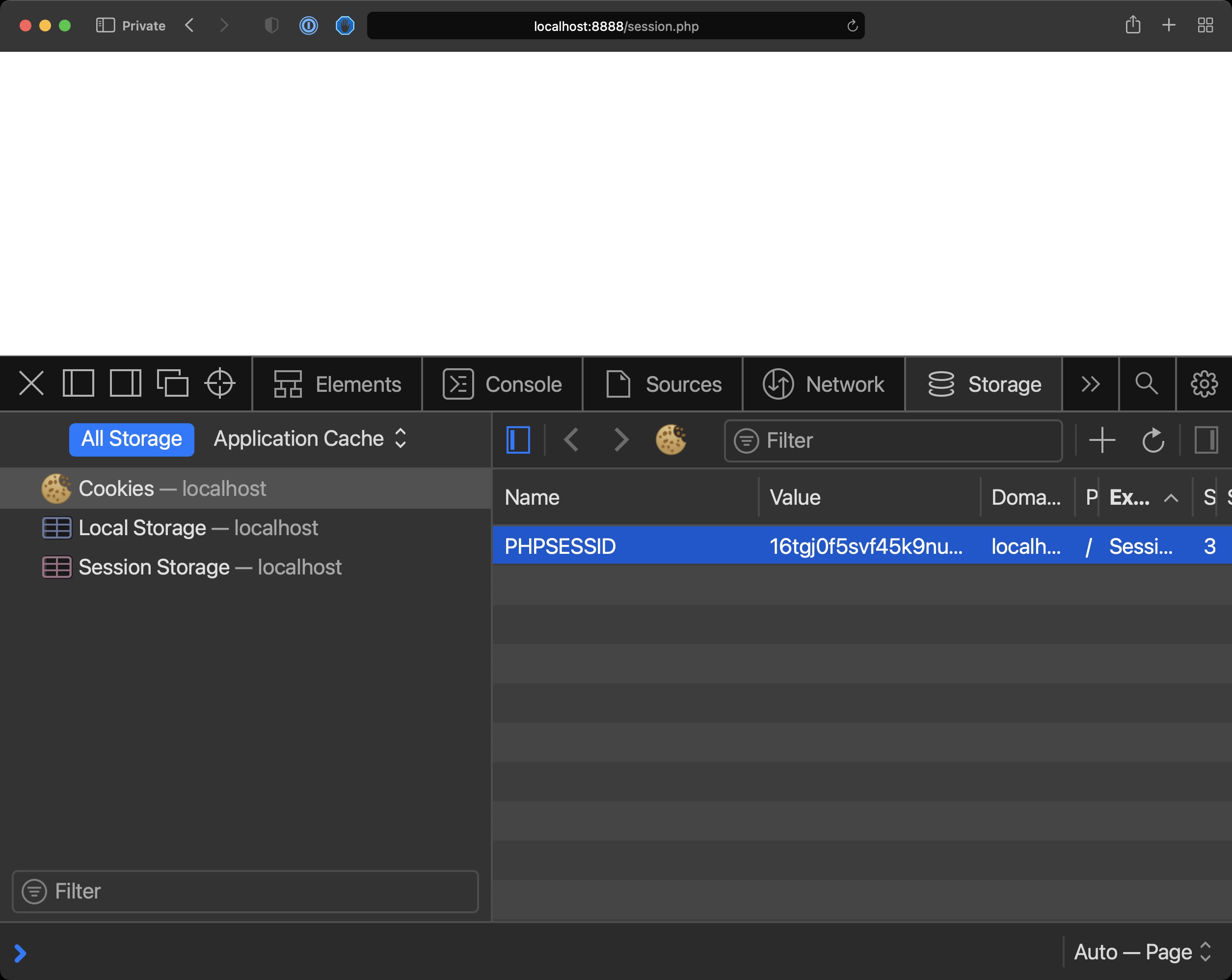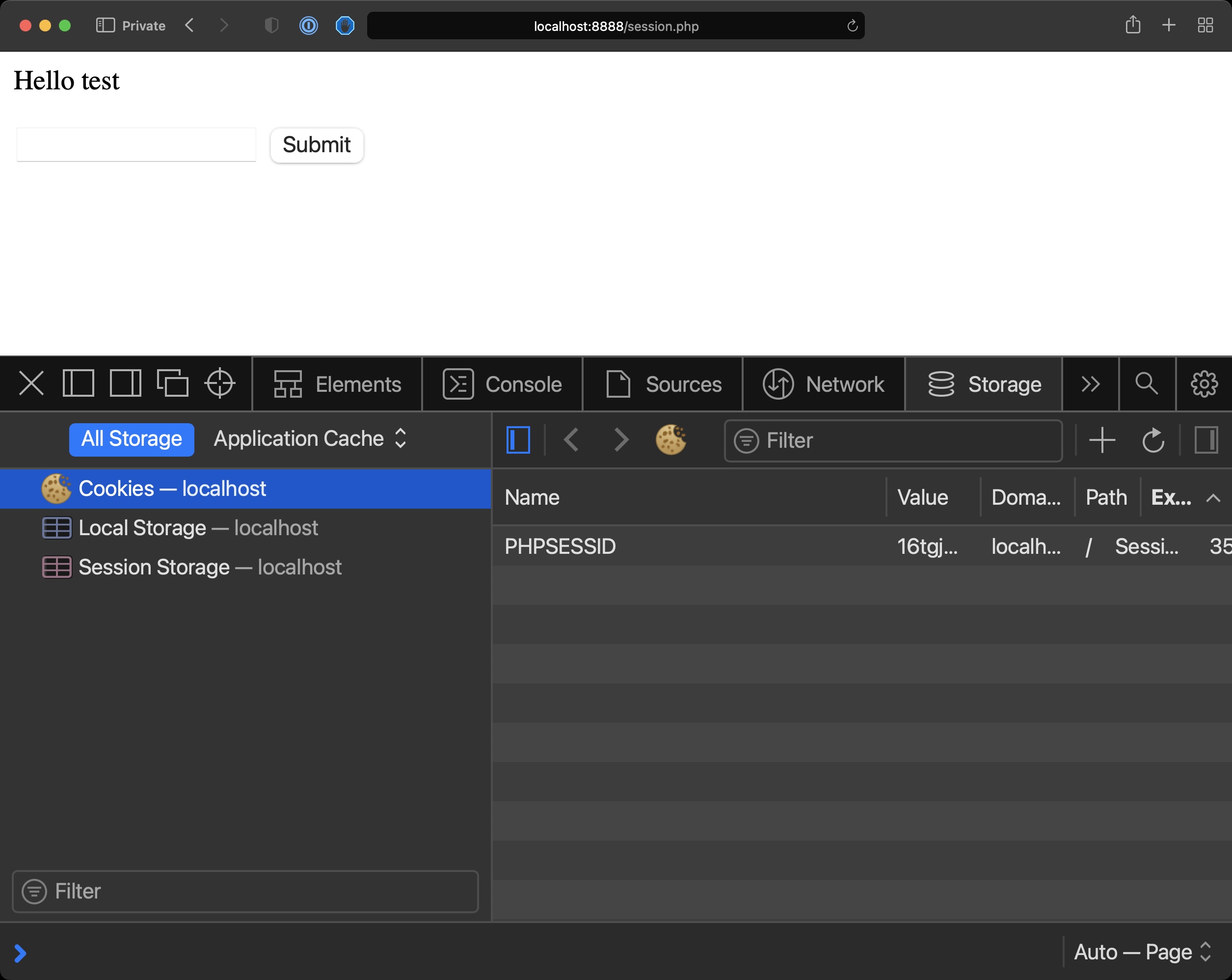How to use PHP Cookie-based Sessions
One very interesting use case for cookies is cookie-based sessions.
PHP offers us a very easy way to create a cookie-based session using session_start().
Try adding
<?php
session_start();
?>in a PHP file, and load it in the browser.
You will see a new cookie named by default PHPSESSID with a value assigned.
That’s the session ID. This will be sent for every new request and PHP will use that to identify the session.

Similarly to how we used cookies we can now use $_SESSION to store the information sent by the user, but this time it’s not stored client-side.
Only the session ID is.
The data is stored server-side by PHP.
<?php
session_start();
if (isset($_POST['name'])) {
$_SESSION['name'] = $_POST['name'];
}
if (isset($_POST['name'])) {
echo '<p>Hello ' . $_POST['name'];
} else {
if (isset($_SESSION['name'])) {
echo '<p>Hello ' . $_SESSION['name'];
}
}
?>
<form method="POST">
<input type="text" name="name" />
<input type="submit" />
</form>
This works for simple use cases, of course for intensive data you will need a database.
To clear the session data you can call session_unset().
To clear the session cookie use:
setcookie(session_name(), '');download all my books for free
- javascript handbook
- typescript handbook
- css handbook
- node.js handbook
- astro handbook
- html handbook
- next.js pages router handbook
- alpine.js handbook
- htmx handbook
- react handbook
- sql handbook
- git cheat sheet
- laravel handbook
- express handbook
- swift handbook
- go handbook
- php handbook
- python handbook
- cli handbook
- c handbook
subscribe to my newsletter to get them
Terms: by subscribing to the newsletter you agree the following terms and conditions and privacy policy. The aim of the newsletter is to keep you up to date about new tutorials, new book releases or courses organized by Flavio. If you wish to unsubscribe from the newsletter, you can click the unsubscribe link that's present at the bottom of each email, anytime. I will not communicate/spread/publish or otherwise give away your address. Your email address is the only personal information collected, and it's only collected for the primary purpose of keeping you informed through the newsletter. It's stored in a secure server based in the EU. You can contact Flavio by emailing [email protected]. These terms and conditions are governed by the laws in force in Italy and you unconditionally submit to the jurisdiction of the courts of Italy.